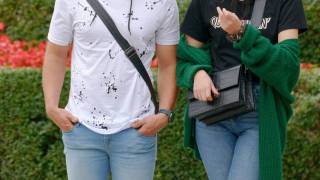Herpes Vaccine Candidate Fails in Phase 2 Study

A therapeutic bivalent vaccine candidate for genital herpes simplex virus type 2 (HSV-2) did not meet its primary clinical study endpoint of annualized lesion recurrence rate.
This rate is calculated based on those genital recurrences that were both clinically- and virologically-confirmed during a minimum of nine months of surveillance.
Recurrence rate is one of the most clinically meaningful endpoints as it provides information on both the number and spacing of recurrences over time in the chronic disease setting.
“There was significantly less power to show a vaccine effect in this trial,” said Vijay Samant, President and Chief Executive Officer, Vical Incorporated, in a press release.
“We are extremely disappointed with the outcome and based upon these results, we will be terminating the HSV-2 program.”
“We took careful measures to recruit patients with a self-reported history of 4 to 9 recurrences annually. Despite that, the annualized recurrence rate during the trial in the placebo group was far less than what was expected based on their self-reported history.”
“The randomized, double-blind, placebo-controlled protocol requires that patients be followed for 12 months after their last dose, and as a result, we will continue to follow the active patients until July 2018.”
The Phase 2 study was conducted in 261 healthy HSV-2 seropositive adults, 18 to 50 years of age, with a self-reported history of 4 to 9 recurrences per year. Subjects were randomized 2:1 to receive either vaccine or placebo.
The vaccine was generally safe and well tolerated, as assessed by an independent safety monitoring board; there were no grade 4 adverse events or serious adverse events reported related to vaccination.
According to the Centers for Disease Control and Prevention (CDC), genital herpes is widespread throughout the world and is generally sexually transmitted.
Over 24 million people in the United States are infected with HSV-2 and there are 776,000 new infections each year.
Antivirals, such as acyclovir, famciclovir, and valacyclovir are the most effective medications available for people infected with HSV.
These medications can help reduce the severity and frequency of symptoms. But, these antivirals cannot cure the HSV-2 infection.
Additional information on Vical is available at vical.com.
Our Trust Standards: Medical Advisory Committee


























